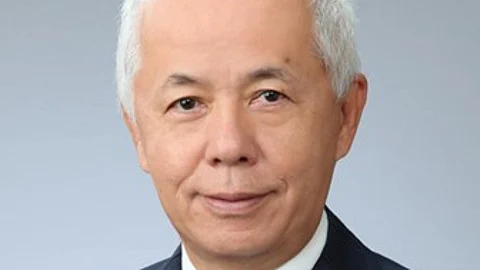
- NEWS
- the EDIT
- COMMENTARY
- BUSINESS
- LIFE
- SHOW
- ACTION
- GLOBAL GOALS
- SNAPS
- DYARYO TIRADA
- MORE

A representative from the World Energy Council emphasized the need for both developed and developing countries to adopt flexible, long-term energy planning to address evolving challenges in the energy sector. Naomi Hirose, Chair of Impact at the council, highlighted the importance of balancing energy security, equity, and sustainability while factoring in industrial competitiveness as a new critical dimension.
“The energy transition takes many years. It doesn’t happen in one day or one year. Sometimes it takes two or three decades,” Hirose said during a sustainability talk hosted by Aboitiz Power Corporation. “That’s why governments should have a clear plan for the next 20 to 30 years, then monitor how you achieve that.”
Hirose underscored the necessity of tailoring energy strategies to each country’s unique economic development path. “In the Philippines’ case, [it should be asked] how it would develop economically so that the kind of energy needed in the future [is planned out].”
For Japan, Hirose noted an expected surge in AI-related power demand, requiring expansion of its power supply in the short to long term to sustain economic growth.
The energy trilemma — balancing energy security, energy equity (affordability and accessibility), and environmental sustainability — remains a complex challenge. “Since all of them are very important, effort must be made to balance all three. But this is not easy because these objectives often conflict with each other, creating trade offs,” Hirose explained. For example, expanding renewable energy improves sustainability but may compromise supply reliability.
Hirose added a fourth crucial factor — industrial competitiveness — has become increasingly important amid rising global trade tensions and the strategic importance of energy transition technologies. “Many countries, including Japan, are trying to strengthen the competitiveness of products essential to the energy transition, such as solar panels, and at the same time trying to protect their domestic industries by invoking border policies,” he said.
Reflecting on historical shifts, Hirose recalled the 1973 Oil Crisis, which focused global attention on energy security through diversification of energy sources and import origins. In the 21st century, climate change took precedence.
For the Philippines, an archipelago heavily reliant on energy imports, Hirose stressed the importance of decentralized power systems using solar panels and batteries to improve energy access across islands. “The most important part that the Philippines should focus on is energy security. There are people who still do not have good access to electric power,” he said.
According to the 2023 World Energy Trilemma Index, the Philippines scored 56.9 out of 100 overall, with 59.3 in energy security, 49.4 in energy equity, and 64.4 in environmental sustainability.
